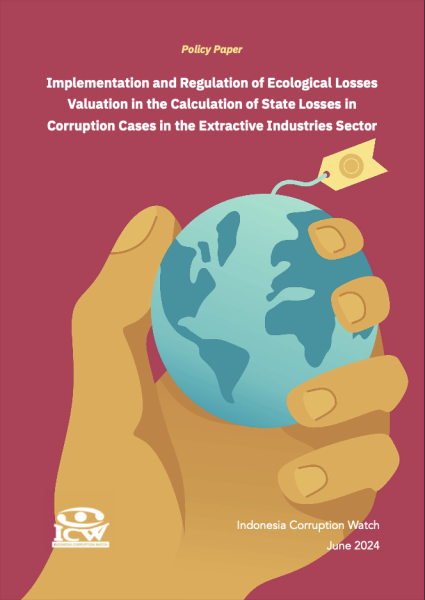Implementation and Regulation of Ecological Losses Valuation in the Calculation of State Losses in Corruption Cases in the Extractive Industries Sector

Indonesia Corruption Watch (ICW), alongside with two experts, namely Dr. Totok Dwi Diantoro, S.H., M.A., LL.M (Academic at the Department of Environmental Law, Gadjah Mada University) and Roni Saputra, S.H., M.H (Director of Law Enforcement, Auriga Nusantara) have prepared a study in the form of a policy paper regarding "Implementation and Regulation of Valuation Ecological Losses in Calculating Losses in Natural Resources Sector Corruption Cases.”
This study was prepared based on the idea that social losses from criminal acts of corruption, in principle, cannot be measured only by how much state money is corrupted. Moreover, losses also need to include loss of output due to misallocation of resources, distortion of incentives and other inefficiencies caused by corruption. This includes corruption in the natural resources sector, especially the environment and mining, which has a negative impact on income distribution and ecological damage.
However, unfortunately, law enforcement in corruption cases in the natural resources sector has not been able to restore environmental damage to its original condition, as it was before environmental pollution or damage occurred. In fact, law enforcement officials themselves have started a breakthrough by including the element of ecological loss in the indictment and prosecution letter so that it becomes the defendant's responsibility to pay in the form of additional criminal compensation. However, the prosecutor's demands regarding this matter in a number of corruption cases, such as corruption in the export of crude cooking oil (CPO), to the corruption case in clearing palm oil land in forest areas involving Surya Darmadi, were rejected by the judge.
The policy paper that has been prepared can be accessed at the link below.










